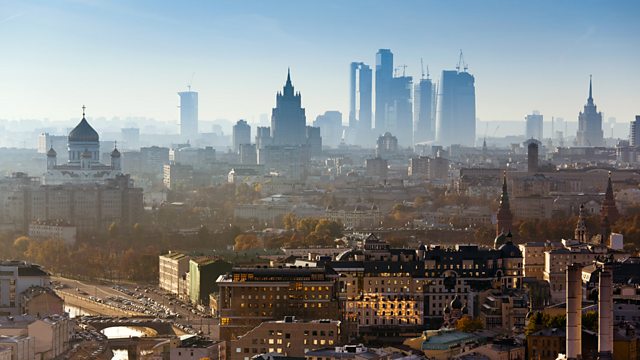
Napoleon Marches East
Napoleon rashly decides to march on Moscow. An opportunity for reform is lost, and Sixsmith shows how Russia's rulers past and present vacillate between reform and repression.
It is the year 1812 and Napoleon's armies are marching eastwards, bringing the message of revolution to Russia. The French Enlightenment and the revolution of 1789 had had supporters and opponents among Russians. But when Napoleon turned his sights on Moscow, the threat to the Motherland spurred them to forget their differences, forget their grievances and unite.
Against the backdrop of Tchaikovsky's 1812 Overture and drawing on Tolstoy's War and Peace to illustrate Russia's deep seated fear of invasion, Martin Sixsmith reveals that the preservation of the nation became the overriding imperative, just as it had been at KulikΓ³vo Pole in 1380, just as it would be at Stalingrad in 1942.
But, before the victory came the bungling. Catherine's successor and unloved son, Paul the First, was murdered in 1801 by a group of disgruntled Guards officers, and his twenty three year old son Alexander was summoned and told it was time for him to 'grow up and start to rule.'
The gap between Russia's ruler and the Russian people had grown dangerously wide and Alexander feared revolution if it were not addressed. So his reforms were aimed at engaging the population in the interests of the state, giving them a stake in society, and creating patriotism and civic consciousness in a resentful population. But even then, his advisor Mikhail Speransky wrote about "the dead hand of autocracy" that had stifled every attempt to reform it, and Martin Sixsmith draws pertinent parallels with Russia today.
Historical Consultant: Professor Geoffrey Hosking
Producers: Adam Fowler & Anna Scott-Brown
A Ladbroke Production for Βι¶ΉΤΌΕΔ Radio 4.
Last on
More episodes
Previous
Broadcast
- Wed 4 May 2011 15:45Βι¶ΉΤΌΕΔ Radio 4
